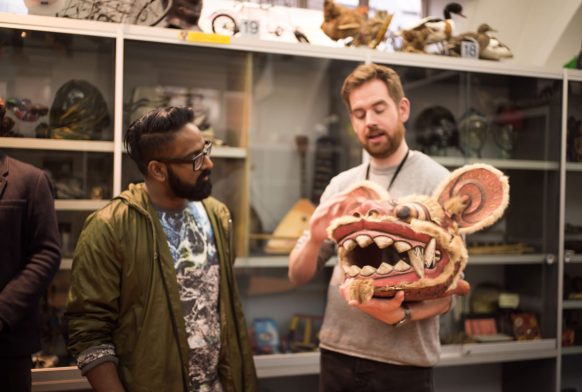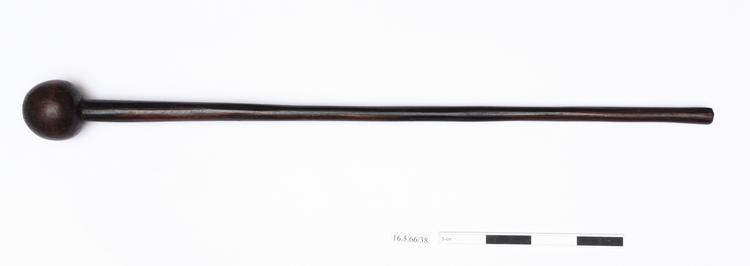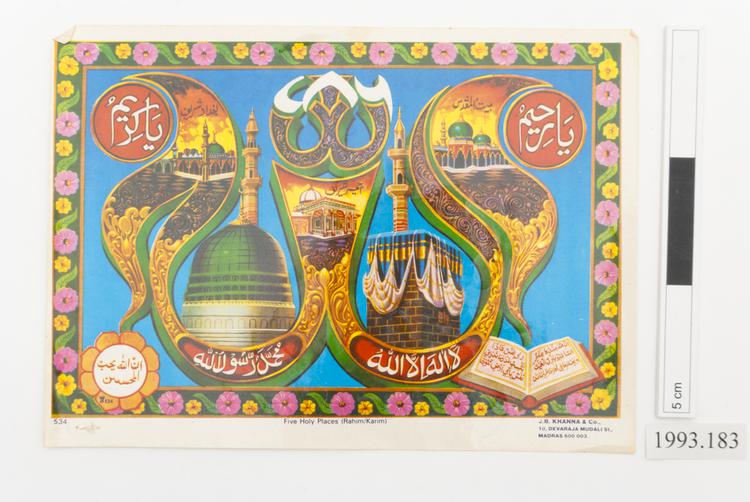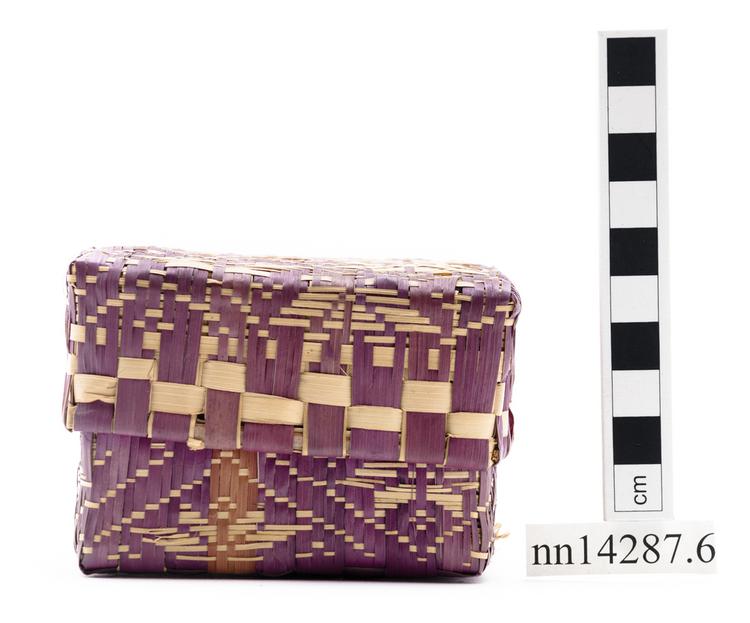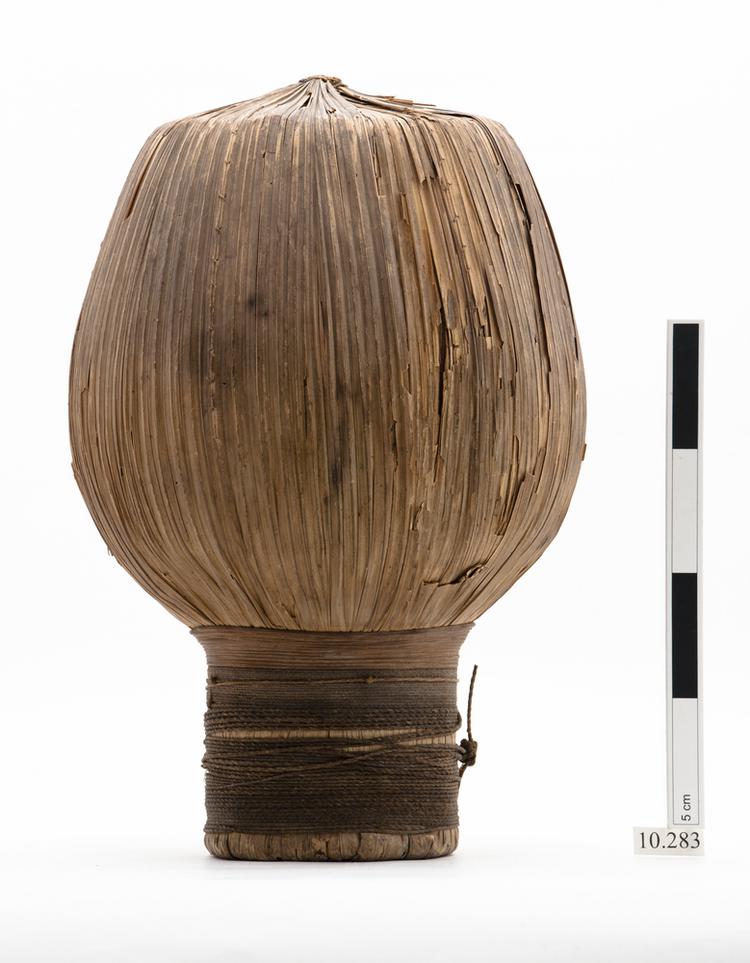Flat face mask, cardboard covered with fabric, decorated with hair, cowrie shells and tassels.
Ngompa is a character in Tibetan opera. Ngompa is an important character in Tibetan opera style called Lhamo. Every performance starts with a special dance by a group of Ngompas, dressed as fish hunters in baggy trousers and black velvet boots. They perform spins and cartwheels which make the ropes on their costume spin out. Their dance purifies the performance space before the main story begins. The Ngompa also appears again in the different stories that get played out. Tibetan opera dates back to the 14th century to a monk named Thangtong Gyalpo, who thought it would be a good way to communicate the ideas of Buddhism. He is still always remembered as part of Lhamo performances today. In Tibetan, Lhamo means Goddess. The opera was given this name after a story of 7 beautiful young women who first helped develop the very beginnings of the form. The Tibetan people who no longer live in Tibet continue these performances in order not to loose their cultural traditions. The Lhamo opera tells stories about the history of Tibet, of ancient heroes and gods, but also satirises current affairs. It began in the 14th century but was so popular by the 19th century most districts had their own troupe of performers. It was the highlight of annual Zho-Ton festival organised by the monastery at Drepung. It became so popular with people from all social backgrounds that the government paid for it. These operas were also performed for the Dalai Lama at his summer palace, the Norbulingka. It is performed in the open air, but sheltered by a canopy, in a circular space without scenery or props. It relies on a narrator to set the scene. There is a minimal musical accompaniment of drum and cymbal.



